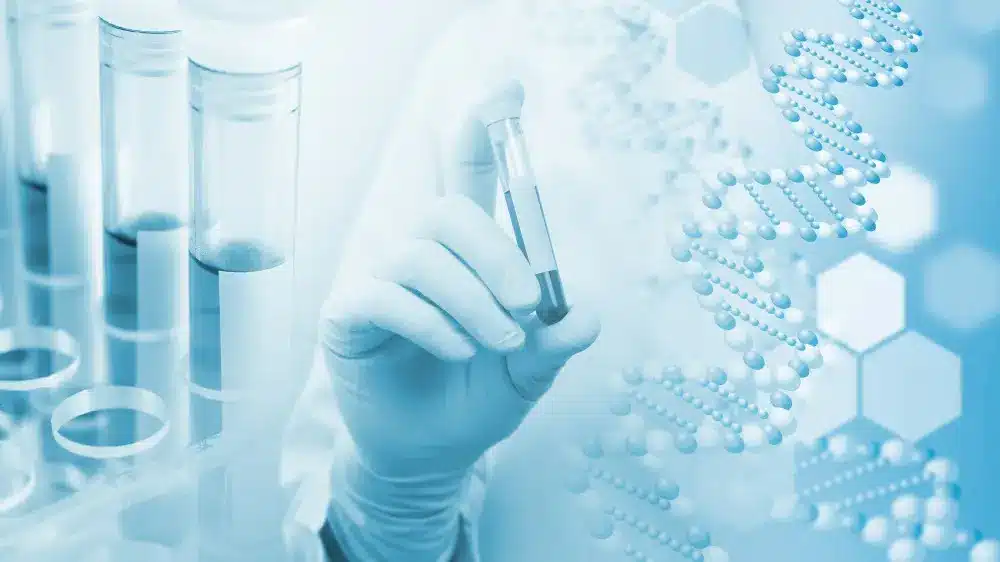Our need to know where we come from and be a part of one bigger story is a very human thing. DNA testing provides a scientific perspective on an individual’s place within their vast story. This journey could uncover surprising truths about your family and health. It may also show how your ancestors traveled.
This article explores the insights a DNA test can provide, from ethnic origins to health traits. It shows how your DNA links you to relatives and human history. Understanding these layers helps you see your place in a much larger narrative.
1. Geographic Ancestry and Ethnicity Estimate
Among the latest revelations based on a DNA test is your estimate of your ethnic heritage. This report offers an exciting summary of your ancestry by region of the world. It shows the communities your ancestors likely belonged to.
This is done by comparing them to reference panels. These panels consist of individuals who have strong connections in specific areas.
Interpreting the Percentage Breakdown
It should be noted that this is not a final map but an estimate. Each company may produce slightly different results. This depends on their unique algorithms and reference databases. These percentages show where your ancestors likely came from hundreds of years ago. They give a broad view of your ancestry, not specific details about recent ancestors.
The Science of Genetic Groups
Others provide even more detailed service by distinguishing genetic groups. These may put you in touch with certain sub-regions, such as a county in England or a village in West Africa.
This deeper look links your DNA to recent migration trends in history. It goes beyond continental percentages to give a clearer picture of your ancestry.
2. Expanding Your Family Tree with Genetic Matches
DNA testing links you to living relatives in significant ways. A DNA test kit examines your DNA and matches it to a database of potential relatives. They identify individuals related to you by genetics. This means you have a common ancestor.
Connecting with Unknown Relatives
The database size of a company is a major factor in determining whether you will find a match. You may find out about close relatives you did not know or meet a myriad of distant relatives. This aspect helps adoptees and those who don’t know their parents. It fills in gaps in their history.
Verifying Family Lore and Uncovering New Branches
DNA matching is an effective means of validating an old family story. It might also reveal unexpected connections. This could show a new branch in your family tree or point to cases of mistaken parentage. These findings help confirm and expand your research using genetic data.
3. The Deeper Historical Context of Your Lineage
There are tales in your DNA that go way back before literature. Some tests reach deep into history. They can connect your experiences to the larger story of humanity.
Tracing Ancient Human Migrations
DNA tests also assist you in discovering your ancient haplogroups. The Y-chromosome DNA test follows the paternal line. Meanwhile, mtDNA tests track that of your mother. These genetic markers reveal your direct lineage thousands of years back. They connect you to the ancient migrations of humankind.
This perception considers your life as a thread in a great human tapestry. It gives you a deep sense of belonging to history.
4. Insights into Genetic Traits and Wellness
Many studies look at how your genes shape who you are today. This includes your physical traits and health risks. It’s important to view this area carefully. It is meant to inform you, not to diagnose.
Carrier Status Reports
Some reports can show if you have a genetic variant linked to hereditary disorders. These encompass disease conditions such as cystic fibrosis and sickle cell anemia. This knowledge helps in family planning. Carriers usually don’t have the condition, but can pass it on to their children if both parents are carriers.
Wellness and Trait Reports
DNA acts like a guidebook, offering insights into your unique traits. It shapes your ability to process caffeine, tolerate lactose, and develop muscle. Some companies specialize in personalized diet and exercise plans based on genetic markers. However, the scientific validity of this advice may leave much to be desired.
5. Connecting with Living Relatives
DNA matching is a dynamic feature that turns abstract data into personal connections. It uses your genetic data and compares it with others in the database. This finds shared DNA segments measured in centimorgans (cM). These segments suggest a recent common ancestor.
- Close Family (1,300-3,500 cM): This group includes parents, siblings, and grandparents.
- Extended Family (575-1,330 cM): This is commonly composed of first cousins.
- Distant Relatives (15-360 cM): They can be between second and fourth cousins.
These matches can provide key information. They help confirm family ties and uncover entire branches of your family.
Addressing Privacy and Ethical Considerations
By submitting your DNA, you give the most personal information. There’s a need to understand how your DNA data is used and protected. These tests have a global market valued in billions, and the data is a valuable asset.
Understanding Data Privacy and Security
Organizations have different data storage policies. They vary in how they share data with outside researchers and team up with law enforcement. You should make sure you read these policies before testing.
Some companies anonymize and group data for research after getting permission. However, others face questions about how they handle sensitive data.
Setting Realistic Expectations
The outcomes can be surprising and tough emotionally. This includes discovering unknown family ties. In addition to that, genetic genealogy is a science that continuously changes. Ethnicity estimates change as reference databases grow. So, your results may shift over time. This happens not due to your DNA, but because of improved data.
Conclusion
A DNA test is a key to unlocking great mysteries about your past, present, and identity. It is a strange intertwining of history and science. This gives you the sense that you are part of a larger human story. You should take time to research this discovery, and you will be digging into the deep roots of your family.
Also Read-
- Staying Ahead in Dental Practice: Continuous Education, Tech Trends, and Patient Care
- Integrative Health Practices for Aspiring Nurses
- Enhancing Memory and Cognitive Health in Seniors







